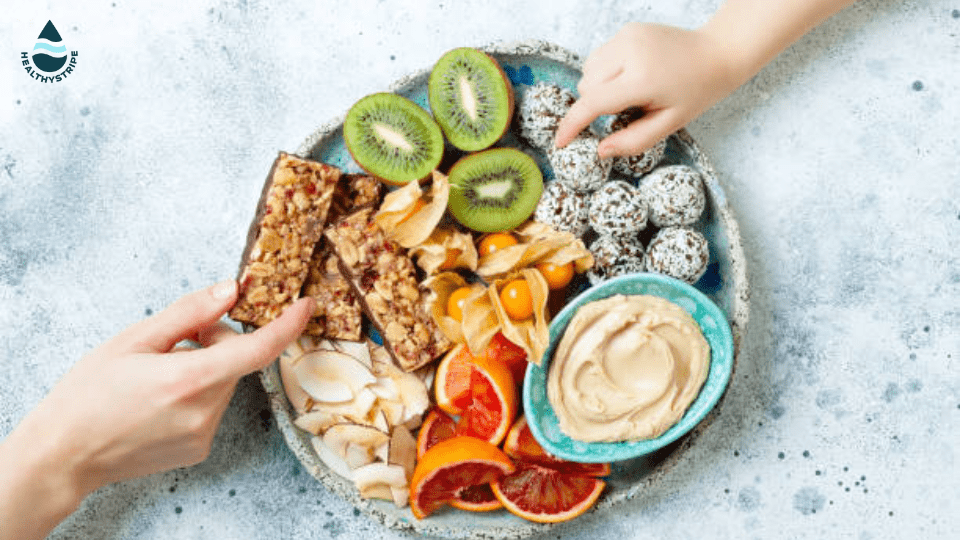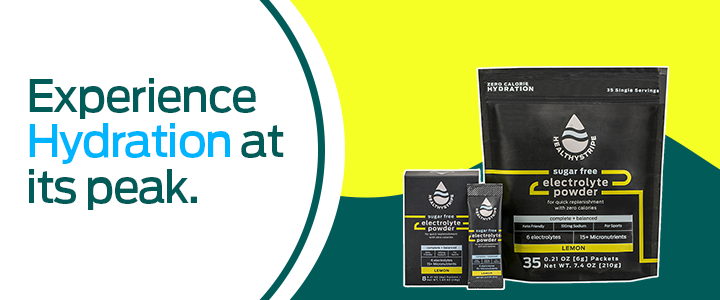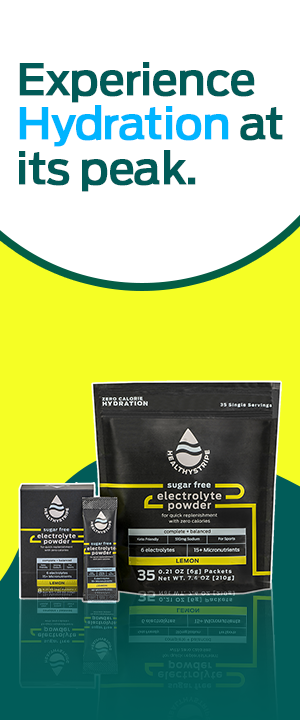No-Sugar Diet: Top Benefits, Foods, and How to Get Started

Imagine waking up every morning with an unlimited dose of energy, saying goodbye to notorious sugar crashes, and adopting a lifestyle that makes you feel lively and fresh. Isn’t it fascinating? You can make it possible by simply opting for a no-sugar diet.
In the world of sweet-laden treats, adopting a no-sugar diet might be challenging, but it is not impossible. Everyone’s journey to a healthy lifestyle is different. Some people might find it easier to cut out all sugars at once, while others may prefer to cut it down slowly, but the long-term benefits to your health and well-being are worth the effort.
According to advanced research statistics by food and agriculture organizations, each individual consumed 24 kilograms of sugar on average in 2022. These alarming stats can relate to the prevalence of various health problems associated with high sugar intake. While most individuals have a sweet tooth, it is critical to limit high sugar intake and prefer a no-sugar diet as an alternative.
This blog details the benefits of a no-sugar diet, its benefits, and tips to get started with a no-sugar diet.
The Benefits of a No-Sugar Diet
A no-sugar diet, also called a sugar-free diet, involves reducing the intake of added sugars. It involves cutting artificial sweeteners, candies, soda drinks, and sweet beverages. A no-sugar diet has several potential benefits for your health and overall well-being.
The American Heart Association suggests sugar consumption of 36 grams (approximately 9 teaspoons full) for males and 25 grams (6 teaspoons full) for females, while most Americans take more than 100 grams of sugar per day. 77% of them are trying to cut sugars from their diet, and 7 out of 10 people are willing to opt for a no-sugar diet.
Here are some of the advantages of a no-sugar diet:
1- Weight Management:
One of the primary benefits of a no-sugar diet is its potential to aid in weight management. Added sugars in foods and beverages contribute to excess calorie consumption without providing significant nutrients like proteins, vitamins, and fibers. Decreasing the intake of a high-sugar diet can cut a significant amount of calories and help with weight loss.
According to weight loss statistics 2023 by the International Food Information Council, 38.6% of people chose a no-sugar diet for weight management all over the world last year.
2-Improved Blood Sugar Control:
Excessive intake of sugars can increase the incidence of diabetes. Artificial sweeteners increase blood glucose levels and insulin resistance. Research studies demonstrate that a no-sugar diet can help stabilize blood sugar levels and improve insulin sensitivity, as sugar plays a critical role in insulin dynamics.
A 14-day no-sugar diet plan or a 30-day no-sugar diet plan can help control blood sugar levels significantly. A sugar diet is a long-term approach to managing diabetes and other diseases associated with obesity.
3-Reduced Risk of Chronic Diseases:
High sugar intake is linked with obesity. Obesity can cause cardiovascular health problems, fatty liver, diabetes, and other chronic diseases. By eliminating added sugars, you can lower your risk of diseases and promote overall health.
4-Better Dental Health:
Artificial sweeteners and sweetened beverages are not good for oral health. Excessive intake of added sugar is linked with dental caries and is a leading cause of tooth infection and decay. Cutting sugars from your diet prevents dental caries and improves oral hygiene. A 14-day no no-sugar diet plan can significantly improve your oral health.
5-Improved Skin Health:
High sugar intake can be linked to skin issues like acne and premature skin aging. Clinical studies suggest that fast foods, artificial sugars, and fats have a positive association with acne breakouts. Choosing a sugar diet can improve your skin health.
6-Better Heart Health:
Sugars promote the production of bad cholesterol (LDL) and triglycerides in the body, which leads to cardiovascular diseases. Studies demonstrate that taking too much sugar by consuming sweetened beverages can cause heart disease and increase the rate of mortality.
Reducing sugar intake can promote better heart health and lessen the risk of hypertension.
7-Enhanced Mental Clarity:
Research studies suggest that high sugar intake can cause depression and mental health problems. There is a close association between depressive symptoms and high sugar intake. You can easily observe improvement in mental focus and clarity after reducing your sugar intake.
8-Reduced Inflammation:
High sugar intake has been associated with increased inflammation in the body, which is the prodromal of various health issues. Preferring no no-sugar diet over sugary foods can reduce the risk of inflammation and obesity.
9- Improved Liver Health:
Artificial sugars are linked with nonalcoholic fatty diseases (NAFLD), in which fats deposit in the liver.
A clinical study included 47 people who drank 1 liter of sweetened soda drink daily for 6 months. They had significantly raised levels of serum triglyceride and LDL levels and increased fat deposition in the liver compared to the control group, who drank water and low-fat milk daily for 6 months.
This data indicates that no sugar diet can improve liver health and is particularly helpful for people with fatty liver.
Experimental findings support that the negative feedback pathways in the brain are affected by sugar, and people under stress crave more sugar and are more vulnerable to obesity and other health disorders. Is it not the most compelling reason to shift to a no-sugar diet?
Foods to Eat on a No-Sugar Diet
It is important to note that not all sugars are bad. Natural sugars found in whole foods like fruits and vegetables come with essential nutrients and dietary fiber, which can have positive health effects. When considering a no-sugar diet, it’s important to distinguish between added sugars and naturally occurring sugars and to ensure you’re still getting a balanced and nutritious diet.
Here is a list of no-sugar foods that can help you maintain a low-sugar diet plan.
1-Fresh Fruits:
Some fruits contain natural sugars. These natural sugars are beneficial for health compared to artificial sugars. You can eat fresh fruits like berries, apples, pears, and citrus fruits but at a moderate limit.
2-Vegetables:
Vegetables are low in sugar and rich in Vitamins, dietary fibers, and nutrients. However, they can help you provide overall health benefits.
3-Lean proteins:
To maintain muscle mass incorporate lean protein sources like chicken, fish, eggs, and legumes in your diet plan. These proteins are a major part of a no-sugar diet.
4-Nuts & Seeds:
Satisfy your crunch with unsweetened nuts and seeds such as almonds, walnuts, Flax seeds, and chia Seeds.
5-Whole grains:
Whole wheat products, brown oats, and rice provide you with a sustainable source of energy with minimum to no sugar content. Moreover, they give you a feeling of satiety and decrease your cravings for sugars.
6-Plain Yogurt:
Choose unsweetened yogurt but feel free to add fruits of your choice to make it taste better. Low-fat milk and plain yogurt are healthy no no-sugar foods.
7-Healthy Fats:
For optimal body functioning opt for healthy fats like Avocados, olive oil, and coconut Oil.
These healthy fats support various body functions.
8-Unsweetened Beverages:
Avoid sugary drinks and choose herbal teas and natural water. Opt for healthy alternatives to sugars and be mindful of your eating habits.
According to research, Only 5% to 10% of consumers actually read the label before buying. So, develop the habit of reading labels carefully so that you may not dump in unnecessary sugar and ruin your no-carb no-sugar diet.
How to Start a No-Sugar Diet?
Starting something new requires stepping out of your comfort zone and embracing change.
Starting off a 14-day no-sugar eating regimen is a powerful way to initiate your journey towards better health.
Here, is a step-by-step guide to starting a no-sugar diet:
1- Educate yourself:
Educate yourself about different types of sugars, their caloric values, where they hide in different varieties of foods, and their impact on health.
2-Self-assessment:
Assess your current lifestyle, and ponder over the things you need to change. Self-assessment will help you deeply understand your weaknesses and curate a diet for you.
3-Set Goals:
Set your goals and objectives, it will really help you feel motivated. Your first target size holds great importance. Setting targets and goals is a great technique to change your behavior towards sugary foods.
4-Gradual Transition:
Gradual Transitions are the key to avoiding exhaustion and burnout. Start your no-sugar diet plan by taking baby steps and then move towards the next step.
5-Stay Hydrated:
Drink plenty of water throughout the day to stay hydrated. Avoid carbonated drinks with artificial sweeteners. Prefer healthy herbal teas that have antioxidants that can detoxify your body.
6-Meal Preparation:
Prepare your meals and snacks beforehand to ensure that you have no sugar options readily available. This will be a major resistance to avoiding any unplanned sugar consumption.
7-Monitor Progress:
Keep a record of your progress and have a keen eye on the signs that the body expresses when it undergoes a change in habits and routine.
8-Be Kind to yourself:
Be kind and gentle with yourself while following a sugar-free diet. Being hard on yourself may result in burnout.
9-Consult a Nutritionist:
Consider consulting a healthcare professional or registered nutritionist before making diet plans, especially if you are suffering from a chronic illness.
What is a good electrolyte drink without sugar?
A good electrolyte drink contains important electrolytes like sodium, magnesium, and potassium. It compensates for electrolyte loss due to sweating and maintains electrolyte balance.
Coconut water is a natural beverage and it is a great choice as an electrolyte drink without sugar. Natural juices like fresh fruit juices are good electrolyte drinks without sugar.
According to the World Health Organization (WHO) Guideline 2015 on the intake of free sugars, a single can of sugar-sweetened soda contains about the upper limit of the recommended 25–50 grams per day. It indicates that soda drinks should be avoided to maintain a good electrolyte and sugar balance in your body. You can take no-sugar beverages to limit your sugar intake.
Among numerous potential dietary determinants of obesity, sugar-sweetened beverages (SSBs) have recently received a great deal of attention, because they are the largest source of calories and added sugars.

Source: https://www.healthyfoodamerica.org/sugartoolkit_overview
Conclusion:
To conclude, It might be hard to start on a no-sugar diet journey but the progress and efforts will be worth the results. Encourage yourself to take a step towards healthier food choices that will bring immense health benefits in the long run. Before making significant changes to your diet, especially if you have underlying health conditions, it’s a good idea to consult a healthcare professional or registered dietitian to ensure that your dietary choices align with your individual health needs and goals.
Frequently Asked Questions:
How to cut sugar out of your diet?
What are the Common Mistakes to Avoid on a No Sugar Diet?
Starting a no-sugar diet can be a rewarding journey for your health, but it’s important to be aware of common points that can hinder your progress. Ignoring food labels and hidden sugars, taking artificial sweeteners and soda drinks, neglecting whole foods, and ignoring natural sugars is not good choice to do in a no-sugar diet plan.
Can you eat fruit on a no sugar diet?
Yes, you can eat fruits on a sugar diet but only in moderate quantities. Preferring fruits prevents nutritional deficiencies while following a sugar diet plan. You can take fruits like berries, apples, pears, and citrus fruits that contain low amounts of natural sugar. Avoid those fruits that contain spikes in your blood sugar or lead to cravings.
Can I lose weight by not eating sugar?
Yes, cutting out or significantly reducing your sugar intake can contribute to weight loss as it will reduce calorie intake and increase insulin sensitivity, leading to low blood sugar levels. Moreover, sugars have an addictive potential that leads to cravings for food resulting in weight gain, you can suppress these cravings by eating no-sugar foods.
How much sugar in a day?
The American Heart Association suggests a strict added-sugar limit of no more than 100 calories per day. The recommended daily intake of sugar is about 6 teaspoons or 25 grams for most adult women and 9 teaspoons or 36 grams of sugar for most men. Individual needs may vary if you have an underlying health problem. It’s better to consult a nutritionist in such cases.









